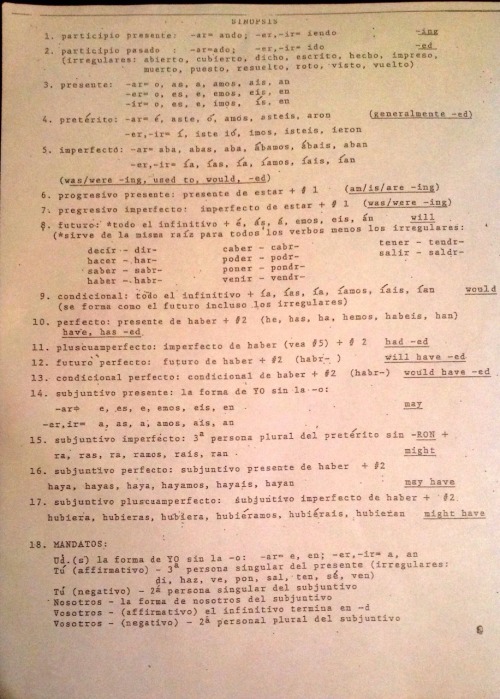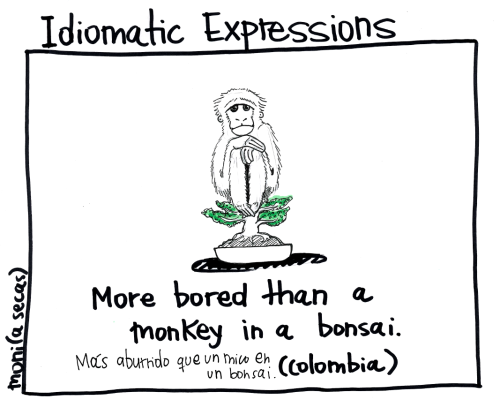#spanish
reblog and tag the languages you speak/understand in order of proficiency!!
VAMOS A TRABAJAR
cádiz, noviembre 2019
kodak pro image 100
nikon f90
nikkor 28-85 f/3.5-4.5 af
https://www.instagram.com/zmorska/
Post link
Nuevo Verano by Amaia
This is such a soft feel-good kind of song, the lyrics is a little bit silly but that makes the song even more fun and the rhythm just fills my heart with joy and peace so I wanted to share it with y’all. as the title says the song is Nuevo Verano by Amaia (Mind you the translation might be a little bit off)
La luna se refleja en mis uñas mordidas
The moon reflects on my bitten nails
Todas las estrellas están juntas en mi bebida
All the stars are together in my drink
La guitarra suena un poco mal
The guitar sounds a little bit off
Pero no importa porque es verano
But it doesn’t matter because is summer
Y además últimamente estoy hablando
And besides, lately I’ve been talking
Me gusta hablar contigo
I like to talk to you
Hablar contigo
Talk to you
Esta noche estoy contenta
Tonight I’m happy
Pero poco, no mucho
But a little bit not much
Aunque hable contigo
Even though I’m talking with you
No consigo verte nunca
I never get to see you
Y mis amigos me quieren matar
And my friends want to kill me
Pero supongo que me da igual
But I guess I don’t care
Y además últimamente estoy hablando
And besides lately I’ve been talking
Hablando con todo el mundo
Talking with the entire world
Me gusta el mundo
I like the world
Me gusta el mundo
I like the world
Pero tú un poco más
But you a little bit more
Solamente un poco más
Just a little bit more
Se acaba el verano y no va a volver
Summer is ending and won’t come back
Todo ha sido raro, pero lo haría otra vez
Everything has been weird, but I would do it again
Te despides con la mano
You say goodbye with your hand
Finges que esto no hace daño
You pretend that this doesn’t hurt
La luna se refleja en mis uñas mordidas
The moon reflects on my bitten nails
Estoy pasando frío porque me he olvidado el jersey
I’m cold because I’ve forgotten my sweater
Mis amigos dicen que está mal
My friends say is wrong
Y que tendría que acabar ya
And that it should end already
Pero yo sigo temblando al ver que llega
But I keep shaking as I see that arrives
Que llega un mensaje tuyo
That a text from you arrives
Hablar contigo
Talk to you
Con todo el mundo
With the entire world
(Se acaba el verano y ya no volverás)
(Summer is ending and you won’t come back)
Me gusta el mundo
I like the world
(Se acaba el verano y tú me gustas más)
(Summer is ending, and I like you more)
Hablar contigo
Talk to you
(Se acaba el verano y ya no volverás)
(Summer is ending, and you won’t come back)
Con todo el mundo
With the entire world
(Se acaba el verano y tú me gustas más)
(Summer is ending, and I like you more)
Me gusta el mundo
I like the world
(Se acaba el verano y ya no volverás)
(Summer is ending, and you won’t come back)
Me gusta el mundo
I like the world
Spanish sayings/expressions P.4
Argentina is a very catholic country, therefore is shouldn’t come as a surprise that we use in a daily so many expressions with God or religious things in it, don’t you worry no one will scold you or tell you to not use the name of God in vain (The only way that can happen is if you come across a person obsessed with religion level 100) , we are so used to it that even people that are barely religious or not religious at all will use them.
Once again chances are some of these are used in other countries with slight changes here and there.
Dios dame paciencia porque si me das fuerza lo mato=God give me patience because if you give me strength I’ll kill him. The pronoun in this one can always be changed depending on who you are talking to. Is basically used when you want to let someone or a group of people know that you’re already losing or lost your patience with them. Mothers or at least mine loved to use this one because I’m not going to lie, I was quite annoying as a kid.
Dios le da pan al que no tiene dientes= God gives bread to those that don’t have teeth. Is used when someone receives something good but can’t or won’t appreciate it as much as they should.
Dios aprieta, pero no ahorca= God squeezes but doesn’t choke. This one is used as a way to acknowledge that someone is going through a rough patch, but they still will be able to get out of there.
Si la limosna es grande hasta el santo desconfía=If the alms are big even the saint is suspicious. Is a way to say that if something is or sounds way too good to be true you should be cautious.
San Roque que este perro no me mire ni me toque =Saint Roch don’t let this dog look at me or touch me. Some people believe that Saint Roch is the saint of dogs because he is always pictured with a dog by his side, is it true? I don’t know I’m barely aware of religious things but anyways, people who are scared of dogs will think about this quote or say it when they see them, for example if a big dog is around while walking down the street my grandma will be saying this under her breath hoping the dog doesn’t bark or go near her.
Menos sabe Dios y perdona =God knows less and forgives. This is a cheeky one used when people ask you too much about something that you know will get you in trouble if they discover it.
Pronounciation of the digraph <OU>
- [ow] - Spanish (very rarely), Northern European Portuguese and formal register of Brazilian Portuguese, Galician, Catalan, Romanian, Czech, Slovak, Finnish, Karelian, Estonian, Sami languages.
- [o] - Portuguese (European, and informal Brazilian)
- [ɔw] - Somali, Occitan, Catalan and Flemish.
- [əw] - Afrikaans, Europen Portuguese (Oporto city region).
- [aw] - Dutch.
- [u] - French (also for /w/), Breton, Cornish, and Greek, shown here for comparison althoug it is more precisely <ου> (o+ipsilon).
- [aʊ, ʌ, oʊ/əʊ, ʊ, u:] - English as in <out>, <trouble>, <soul>, <could> and <group>, respectively.
Maybe I missed a few languages that use <ou>; if you know any more, point them out, please.
Post link
Illustrated expressions: Colombia
Here the university environment (both in campus and dormitories) is so multinational that is like living in a “3 guys are sitting in a bar” joke, which is fun and interesting in many ways. One particular thing I find endlessly amusing about it is sharing idiomatic expressions with its direct translations and meanings (and somehow try understand a bit more of the expression holders through them).
Since a long I’ve been wanting to start this category of “illustrated idiomatic expressions”, and now that I’m here reading some stuff and “more bored than a monkey in a bonsai” I tell myself, let’s graphic-procrastinate a bit and start right now!
This one is a colombian expression for being disappointed, unsatisfied or just very bored.
Post link
[7•14•2017] some notes on spanish conjugations for my university placement test!
Hello, everyone! I graduated this past June and am now headed off to university to study Biochemistry, which means that I am no longer a part of the IB Diploma Programme. In theme, my blog name is going to be changing from @ib-study-and-tea to @biochemistea. (I am an IB alumni now though and still very happy to help current and future IB students!!) Nothing is changing about the blog itself except that I am going to start reblogging things as well as posting more of my own content! Thank you so much for your support!
-Alyssa
TL;DR my blog name is changing because college is a thing
Post link
If your target language is Spanish, or one of the languages you aim to learn, or you need listening practice, or you just want to have something in Spanish playing in the background, I would like to recommend a radio show that’s been a part of my life since I can remember, and still is. It is an Argentinian radio show hosted by Alejandro Dolina and it’s called La Venganza Será Terrible, I can’t even begin to explain how much I enjoy this show and how much peace it brings me and how much it makes me laugh.
There’s a site called Venganzas del Pasado which is an unofficial site, where they upload all the episodes really fast and keep a dated organized archive of the show so you can go as far back as you want or start from the newer ones.
If you do give it a listen or you have questions, please feel free to send me an ask!!!
The Beautiful Bandurria Player (1870). Raimundo de Madrazo y Garreta (Spanish, 1841-1920). Oil on canvas.
The bandurria is a plucked chordophone from Spain, similar to the mandolin, primarily used in Spanish folk music, but also found in former Spanish colonies.
Post link
If you want to travel anywhere in the world for free and meanwhile practise your language skills with native speakers, this website is for you.
TalkTalkBnb combines travel and languages to give you the opportunity to learn a language while traveling and meeting new people, totally for free.
Oh, and you can host native speakers of the language of your choice for a full immersion at home!
On this website you can read Grimms’ fairy tales in 18 different languages! (English, German, Italian, Spanish, French, Portuguese, Russian, Polish, Dutch, Danish, Romanian, Finnish, Vietnamese, Chinese, Japanese, Korean, Turkish and Hungarian)
Cuando Muere una Lengua / When a tongue dies is a video from the project 68 voces (68 voices), a project “to promote the pride, respect, and use of these indigenous Mexican languages among native speakers, and non-native speakers”.
The audio above is in Náhuatl de la Huasteca de Hidalgo, with Spanish subtitles, and English in the video description. The other six of the videos from the project so far, in Huastec, Mayan, Mixtec, Totonac, Yaqui, and Zapotec with gorgeous illustrations, are available from the 68 voces website, which also has further information about why they were created:
At present, 364 language variants are spoken in Mexico, classified in 68 linguistic groups, and 11 linguistic families (INALI, 2008). At least, one-half of these are in a state of “accelerated extinction.“
Here’s a quote from Gabriela Badillo, the creator and director of the project, from an article on Global Voices:
In general, the communities that we have approached have received [the project] with emotion, eager to see part of their history, tradition and culture in a video. They are not shown as a ‘static culture’ or a museum exhibit, but rather [shown as] something living that is evolving and growing with the times and the new generations; avoiding the usual ‘clichés’ of indigenous people and including the youth of the communities, as well as contributing Mexican artists. Above all, in classrooms we have been told that children have been particularly touched [by the project].
I came across this post on Instagram and thought it was juicy enough to make a post out of it!
One caretaker at an animal sanctuary asks the sheep how they’re doing and says they reply in Catalan. Here’s why:
The sound lambs and sheep make becomes the onomatopoeia “bee” /bέέ/ in Catalan, which resembles “bé” meaning “good”. In English, the conventional onomatopoeia for the same sound is “baa” or “meeh”.
Other interesting onomatopoeic contrasts would include the “woof woof” dogs make, which in Catalan becomes “bup bup” and in Spanish “guau guau”. Also to be pointed out is the basic sound of birds, which we say is “tweet tweet” in English while in Catalan it’s expressed as “piu piu” or “pío pío” in Spanish. This is where the expressions “No decir ni pío” (SP) and “No dir ni piu” (CAT) come from, meaning “Not making a peep”!
Desapariciones(disappearance) is song written by Panamanian singer Rubén Blades (released in 1984).
It’s a song that represents how people feel under a dictatorship, when someone could disappear and you didn’t know if they could ever be back.
It has been covered by Mexican band Maná and Argentinian band Los Fabulosos Cadillacs (that altered the song a little bit to sound more “Argentinian”).
It’s amazing to see the contrast between the different versions: the style varies a lot, pronunciations and paces are different, etc.













![Pronounciation of the digraph <OU> [ow] - Spanish (very rarely), Northern European Portuguese Pronounciation of the digraph <OU> [ow] - Spanish (very rarely), Northern European Portuguese](https://64.media.tumblr.com/d59b3ffbdcb3f395a34a64913e12b2f4/becbddcc5ea3ae1b-27/s500x750/a2a543cc14367111cf601d0394b32b2d01114ab1.png)

![[7•14•2017] some notes on spanish conjugations for my university placement test! Hello, everyone! I [7•14•2017] some notes on spanish conjugations for my university placement test! Hello, everyone! I](https://64.media.tumblr.com/6e9b4208aaacbfb2097ba47ddccddc02/tumblr_ot3pzcPlrZ1rt95huo1_500.jpg)

